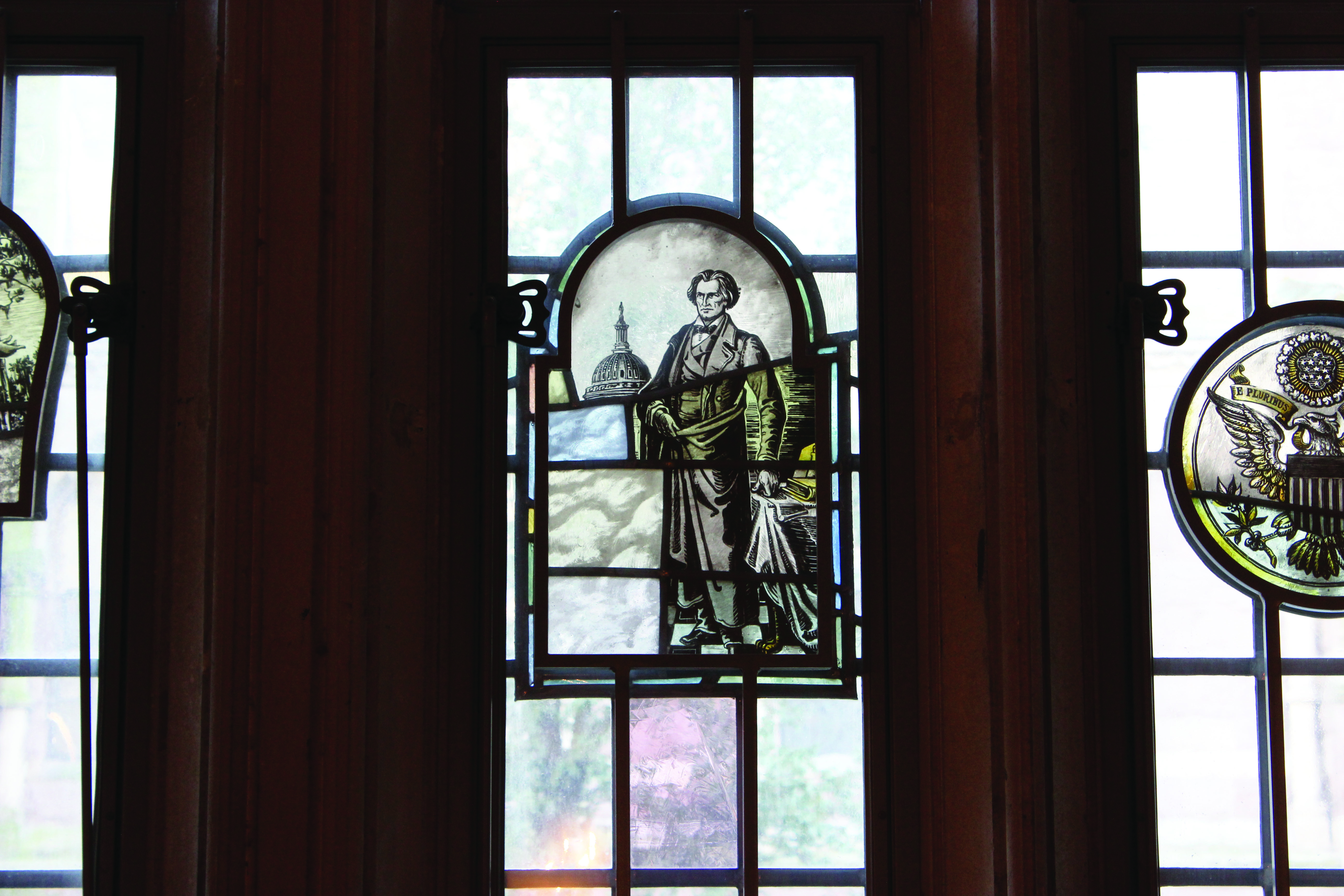
A small group of protesters assembled along Elm Street in the cold and rain Saturday afternoon, waving bright yellow picket signs and taking turns shouting into a megaphone to call for the renaming of Calhoun College. But on that stormy afternoon, only one student joined the demonstration, which was organized by the anti-racism Answer Coalition and the Yale chapter of the NAACP. Nine of 10 students interviewed the following day said they were not aware a protest had taken place.
The low student turnout at the protest signals an emerging disconnect between the administrators and advocacy groups driving the Calhoun debate and the wider student community. The controversy over Calhoun — named for former U.S. vice president and vocal slavery proponent John C. Calhoun, class of 1804 — stemmed from national conversations about Confederate symbols that began this summer following the June shooting of nine African-American congregants at a church in Charleston, South Carolina. In his August welcome address to freshmen, University President Peter Salovey called for “an open conversation” about the name of Calhoun. But in recent weeks, many students have become weary of a debate they say is growing tiresome and repetitive.
Ten of 15 students interviewed expressed some level of exhaustion with the Calhoun controversy. Five said they remain actively interested in the topic.
Otis Baker ’19 and Brandon Rabaria ’19 both said the naming debate has run its course.
“It’s an interesting topic, but I think right now it’s kind of died out,” Rabaria said.
He added that while he initially considered attending public discussions about the controversy, he has now lost interest.
Emma Phelps ’19, who is in Calhoun, said she is tired of answering questions about the debate.
“When you introduce yourself, people are like, ‘So what do you think about the name?’” Phelps said. “You have to have that conversation so many times.”
For some students, the arguments made on each side have become repetitive as well. Madeleine Hutchins ’19 said she has not heard any unusual or original analysis since she arrived on campus.
African American Studies professor Gerald Jaynes, who argued against a name change at a Yale Political Union event last week, said he was not surprised that activists had run out of new ideas.
“There’s only so many good arguments that either side could make,” Jaynes said.
And Jimmy Shih ’19 and Cameron Stanish ’18 said attention from University administrators and student organizations, including the News and the YPU, has created the illusion that the majority of students are actively engaged in the debate. The reality, Shih and Stanish said, is that the debate has not significantly affected most students’ lives.
Three students said the naming controversy has drawn attention away from more important issues. Shih faulted Salovey for focusing his entire welcome address on the Calhoun controversy.
“I feel like there could have been a lot of more interesting things to talk about,” Shih said. He added that students should move on from the Calhoun debate and focus instead on escaping the so-called “Yale bubble” that isolates the University from the rest of New Haven.
But Emily Hays ’16, president of the advocacy group Blue Haven, which works to bridge the gap between Yale and New Haven, said the Calhoun debate extends beyond Yale as part of a crucial nationwide reckoning with America’s racist past. Hays was the only student who attended Saturday’s protest.
Professors and administrators interviewed agreed that the debate is more significant than the skeptics contend, as interpretations of the past help shape the identity of historic institutions like Yale.
Calhoun Master Julia Adams said she continues to receive daily emails from students across the University inquiring about the name. She added that she expects the debate to evolve over the next few months to encompass more than just the naming issue.
“We’re at a turning point,” Adams said. “The discussion about the name of Calhoun College can remain relatively contained or can link to large re-examinations of Yale’s role in the world.”
History professor David Blight, who spoke about the political legacy of Calhoun at a September Master’s Tea, said he hopes the debate will eventually force students to reckon with Calhoun’s advocacy of states rights, not just his stance on slavery.
But Blight added that he hopes the debate is resolved soon.
“I don’t think that it serves any good to carry it on so long without simply deciding to do something,” Blight said.
On Oct. 29, MIT professor Craig Wilder, the author of a new book on the history of racism in American universities, will visit Silliman College to discuss the naming controversy, as well as other race-related issues at Yale.







